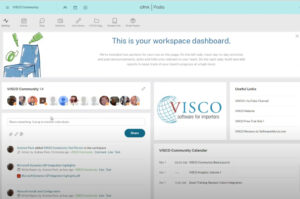There are several common mistakes that small businesses make when implementing new software. The source of these problems can be from inexperience, misunderstanding, or a general lack of dedication to the process. By understanding the following common mistakes you can save yourself time and money and assure a successful transition into your shiny new ERP solution.
1-Look for ways to improve on the current process instead of looking to recreate the current process with new software:
The most common mistake that people make is going into an implementation with the mindset of trying to modify the new system to re-create the current process. Although this is an easy fundament approach to make because it requires little thought in that you do not have to understand the way the new system works, it will be costly and will also not leave you with the best possible system.
Allow yourself to think creatively and look for ways you can cut steps that you have now that are only in place due to limitation in your current system. Also, by taking the time to understand your new systems functionality and the potential benefit to your organization you are improving the value that system will have to the organization while reducing the cost to implement it.
2-Lack of patience:
It is inevitable that things will be uncomfortable and more difficult during the early stages of the implementation. Everyone is doing things differently than they are used to and entering data and not being able to see the benefit in reporting feels like a waste of time. However, successful implementations take time and perseverance so don’t allow yourself to get bogged down in the first couple of months. Have patience.
3-Trying to do it without Help:
Work with your software vendor and allow them to use their expertise to help get you up and running. Also, don’t under estimate the value of face to face time during training. Web conferences are great and affordable but the ability to see and react to body language helps to cement more complex concepts that get lost over the web. This can also mean having the system administrator make a visit to the software vendor’s location where they can be removed from the chaos of phone calls and emails they may experience in their own office. Don’t try to do it without help.
4-Trying to do it all at once:
Breaking the implementation up into phases makes each phase more likely to be successful. Attempting to accomplish all of your goals at the same time is not a realistic expectation and will also overwhelm the users. By breaking up the entire implementation into several stages each user can master the elements for each stage and then and then enter the next stage with the confidence that they will be able to master the next one too. Running parallel with your old system during the first few stages can also be helpful by providing you assurance that the data is being entered correctly. Don’t try to do it all at once.
5-Letting one bad apple spoil the bunch:
The nature of an Enterprise software application is that you are reducing the total workload of the organization by allowing each individual to capitalize on the information provided by other individuals instead of having each employee or department operate in silo’s. However, that means that one person’s sloppy or poor data means bad information for everyone else to work from. Everyone should understand and respect the data and be aware of the implications that is having on other departments and users. Don’t let one bad apple spoil the whole bunch.




